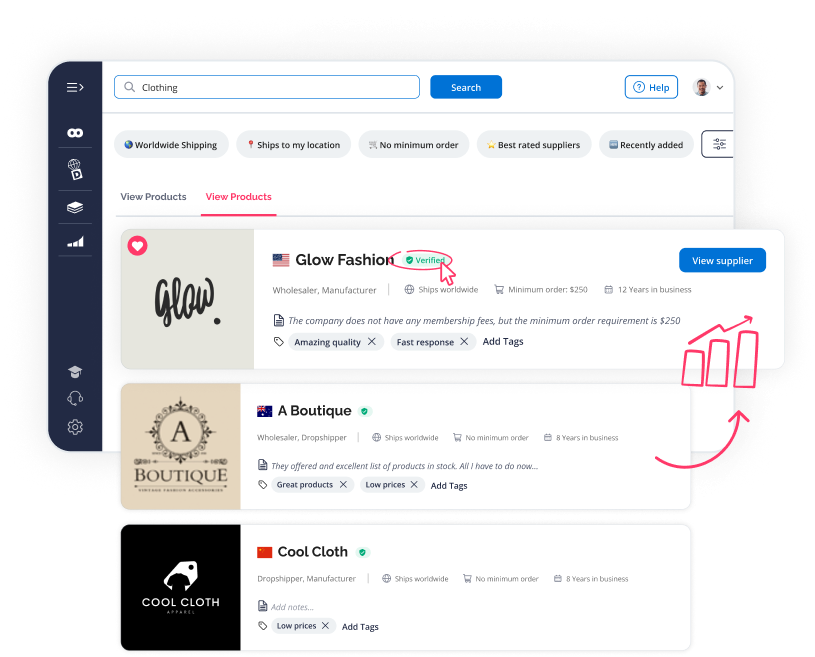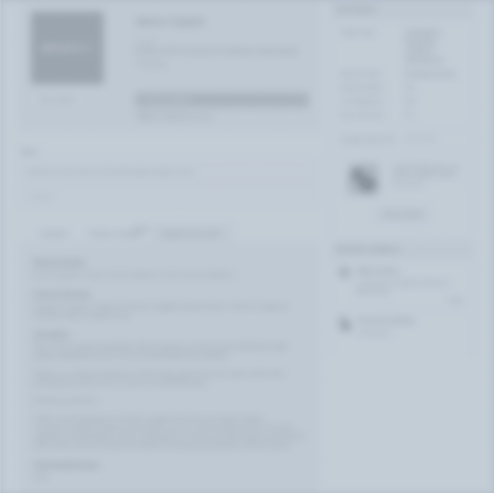Wholesale Tents Suppliers for Ecommerce Sellers
When sourcing tents for your ecommerce business, you're tapping into a growing market fueled by outdoor adventure enthusiasts and family campers alike. Look for suppliers that offer a diverse range of tent types—such as backpacking, family, and waterproof options—to cater to various customer needs. Prioritize quality materials and reliable manufacturing practices to ensure durability and customer satisfaction, and don’t hesitate to request samples to assess firsthand the craftsmanship and functionality of the products you plan to offer

Here’s a selection of suppliers waiting for your call
Wholesale Supplier
 Verified
Verified
 Join to contact this supplier
Join to contact this supplier
 No Minimum Order
No Minimum Order
 14 Years in SaleHoo
14 Years in SaleHoo
Products stocked
About
Manufacturer Supplier
 Verified
Verified
 Join to contact this supplier
Join to contact this supplier
 No Minimum Order
No Minimum Order
 10 Years in SaleHoo
10 Years in SaleHoo
Products stocked
About
Manufacturer Supplier
 Verified
Verified
 Join to contact this supplier
Join to contact this supplier
 No Minimum Order
No Minimum Order
 8 Years in SaleHoo
8 Years in SaleHoo
Products stocked
About
Manufacturer Supplier
 Verified
Verified
 Join to contact this supplier
Join to contact this supplier
 No Minimum Order
No Minimum Order
 1 Years in SaleHoo
1 Years in SaleHoo
Products stocked
About
Manufacturer Supplier
 Verified
Verified
 Join to contact this supplier
Join to contact this supplier
 No Minimum Order
No Minimum Order
 4 Years in SaleHoo
4 Years in SaleHoo
Products stocked
About
Manufacturer Supplier
 Verified
Verified
 Join to contact this supplier
Join to contact this supplier
 No Minimum Order
No Minimum Order
 5 Years in SaleHoo
5 Years in SaleHoo
Products stocked
About
Manufacturer Supplier
 Verified
Verified
 Join to contact this supplier
Join to contact this supplier
 No Minimum Order
No Minimum Order
 4 Years in SaleHoo
4 Years in SaleHoo
Products stocked
About
Manufacturer Supplier
 Verified
Verified
 Join to contact this supplier
Join to contact this supplier
 No Minimum Order
No Minimum Order
 1 Years in SaleHoo
1 Years in SaleHoo
Products stocked
About
Manufacturer Supplier
 Verified
Verified
 Join to contact this supplier
Join to contact this supplier
 No Minimum Order
No Minimum Order
 8 Years in SaleHoo
8 Years in SaleHoo
Products stocked
About
Manufacturer Supplier
 Verified
Verified
 Join to contact this supplier
Join to contact this supplier
 Ships worldwide
Ships worldwide
 Unknown
Unknown
 19 Years in SaleHoo
19 Years in SaleHoo
Products stocked
About
Other product suppliers available...
Trusted by 137,000+ entrepreneurs worldwide

7-day trial today
suppliers in the USA and internationally.
Frequently Asked Questions
Tents are typically made from nylon, polyester, or canvas, with waterproof coatings like polyurethane or silicone. The choice of material affects durability, weight, and weather resistance.
Consider the intended use (e.g., camping vs. commercial), capacity, ease of setup, and portability. Different designs, such as dome, cabin, or pop-up, offer varied benefits in stability and space.
Request samples to assess the craftsmanship and material quality, and inquire about their compliance with industry standards like ISO 9001. Additionally, check for product reviews and buyer feedback.
Lead times can range from 30 to 90 days depending on the complexity and quantity of the order. Factors such as sourcing materials and production capacity can also influence this timeline.
Conduct audits and ask for certifications that focus on labor practices, such as Fair Trade or SA8000. Communication with suppliers about their labor policies and factory conditions is also crucial.


